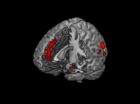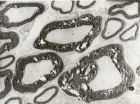(Press-News.org) COLUMBIA, Mo. – Geneticist and anthropologists previously suspected that ancient Africans domesticated cattle native to the African continent nearly 10,000 years ago. Now, a team of University of Missouri researchers has completed the genetic history of 134 cattle breeds from around the world. In the process of completing this history, they found that ancient domesticated African cattle originated in the "Fertile Crescent," a region that covered modern day Iraq, Jordan, Syria and Israel.
Lead researcher Jared Decker, an assistant professor of animal science in the MU College of Agriculture, Food and Natural Resources, says the genetics of these African cattle breeds are similar to those of cattle first domesticated in the Middle East nearly 10,000 years ago, proving that those cattle were brought to Africa as farmers migrated south. Those cattle then interbred with wild cattle, or aurochs, which were native to the region, and changed their genetic makeup enough to confuse geneticists.
In their study published in PLOS Genetics, Decker and a team of international researchers compared the similarities and differences among the genetics of many different cattle breeds to determine how the breeds are related. Their research found mixing of native cattle in Indonesia with imports from India, European and African cattle in Italy and Spain, and European and Asian cattle in Korea and Japan. The MU researchers also determined that unique American cattle breeds, such as Texas longhorns, are the result of breeding between Spanish cattle, transported from Europe by explorers in the 16th century, and breeds of Zebu, or Brahman cattle from India imported into the U.S. from Brazil in the late 1800s. Decker says these discoveries help advance genetics and uncover important information about human history.
"In many ways, the history of cattle genetics mirrors human history," Decker said. "In the case of African cattle, anthropologists and geneticists used to suspect that domesticated African cattle were native to the continent, when in fact, they were brought by migrating peoples thousands of years ago. By better understanding the history of the animals we domesticate, we can better understand ourselves."
Decker also said that cattle breeding is important for animal farmers looking to maximize their herds' meat and dairy production. He says that understanding the genetic history of cattle breeds is important when looking for solutions to agricultural issues.
"Now that we have this more complete genetic history of cattle worldwide, we can better understand the diversity of the species," Decker said. "By understanding the variations present, we can improve cattle for agricultural purposes, whether that is through breeding more disease-resistant animals or finding ways to increase dairy or beef production."
INFORMATION:
A complete copy of the MU study can be found online at: http://www.plosgenetics.org/doi/pgen.1004254
Ancient African cattle first domesticated in Middle East, MU study reveals
2014-03-28
ELSE PRESS RELEASES FROM THIS DATE:
Religion, spirituality influence health in different but complementary ways
2014-03-28
CORVALLIS, Ore. – Religion and spirituality have distinct but complementary influences on health, new research from Oregon State University indicates.
"Religion helps regulate behavior and health habits, while spirituality regulates your emotions, how you feel," said Carolyn Aldwin, a gerontology professor in the College of Public Health and Human Sciences at OSU.
Aldwin and colleagues have been working to understand and distinguish the beneficial connections between health, religion and spirituality. The result is a new theoretical model that defines two distinct pathways. ...
Brain scans link concern for justice with reason, not emotion
2014-03-28
People who care about justice are swayed more by reason than emotion, according to new brain scan research from the University of Chicago Department of Psychology and Center for Cognitive and Social Neuroscience.
Psychologists have found that some individuals react more strongly than others to situations that invoke a sense of justice—for example, seeing a person being treated unfairly or mercifully. The new study used brain scans to analyze the thought processes of people with high "justice sensitivity."
"We were interested to examine how individual differences about ...
Researchers identify good bacteria that protects against HIV
2014-03-28
Researchers at the University of Texas Medical Branch at Galveston by growing vaginal skin cells outside the body and studying the way they interact with "good and bad" bacteria, think they may be able to better identify the good bacteria that protect women from HIV infection and other sexually transmitted infections.
The health of the human vagina depends on a symbiotic/mutually beneficial relationship with "good" bacteria that live on its surface feeding on products produced by vaginal skin cells. These good bacteria, in turn, create a physical and chemical barrier ...
Underweight people at as high risk of dying as obese people, new study finds
2014-03-28
TORONTO, March 28, 2014—Being underweight puts people at highest risk of dying, just as obesity does, new research has found.
The connection between being underweight and the higher risk of dying is true for both adults and fetuses. This is so even when factors such as smoking, alcohol use or lung disease are considered, or adults with a chronic or terminal illness are excluded, the study found.
The study, led by Dr. Joel Ray, a physician-researcher at St. Michael's Hospital and the hospital's Li Ka Shing Knowledge Institute, was published today in the Journal of Epidemiology ...
Married people less likely to have cardiovascular problems
2014-03-28
Analysis of surveys of more than 3.5 million American men and women, administered at some 20,000 health centers across the country — believed to be the largest analysis of its kind ever performed — found that married people, regardless of age, sex, or even cardiovascular risk factors, had significantly less chances of having any kind of cardiovascular disease than those who were single, divorced or widowed.
Among the study's key findings, to be presented March 29 in Washington, DC, at the annual scientific sessions of the American College of Cardiology:
Being married ...
Optimal duration of percutaneous microballoon compression for trigeminal nerve injury
2014-03-28
Percutaneous microballoon compression of the trigeminal ganglion is a brand new operative technique for the treatment of trigeminal neuralgia. However, it is unclear how the procedure mediates pain relief, and there are no standardized criteria, such as compression pressure, compression time or balloon shape, for the procedure. In particular, the links between compression duration and postoperative complications and pain recurrence are still under debate. An extended duration of compression would cause irreversible injury and drastic demyelination, and paresthesia and numbness ...
Concerning number of kids have elevated cholesterol
2014-03-28
WASHINGTON (March 28, 2014) — Roughly one out of three kids screened for high cholesterol between the ages of 9 and 11 has borderline or high cholesterol, potentially placing them at greater risk for future cardiovascular disease, according to research to be presented at the American College of Cardiology's 63rd Annual Scientific Session.
In one of the largest studies of outpatient pediatric clinic visits to date, researchers examined the medical records of 12,712 children who had screening for cholesterol levels as part of a routine physical exam within the Texas Children's ...
Number of babies mom has may play role in future cardiovascular health
2014-03-28
WASHINGTON (March 28, 2014) — Women who give birth to four or more children are much more likely to have evidence of plaque in their heart or thickening of their arteries – early signs of cardiovascular disease – compared with those having fewer pregnancies, according to research to be presented at the American College of Cardiology's 63rd Annual Scientific Session.
While earlier studies have shown an association between several aspects of pregnancy – physiological changes, complications, number of pregnancies – and future heart disease risk, many questions remain about ...
Eating fruits and vegetables linked to healthier arteries later in life
2014-03-28
WASHINGTON (March 28, 2014) — Women who ate a diet high in fresh fruits and vegetables as young adults were much less likely to have plaque build-up in their arteries 20 years later compared with those who consumed lower amounts of these foods, according to research to be presented at the American College of Cardiology's 63rd Annual Scientific Session. This new finding reinforces the importance of developing healthy eating habits early in life.
Previous studies have found that middle-aged adults whose diet consists of a high proportion of fruits and vegetables are less ...
TV linked to poor snacking habits, cardiovascular risk in middle schoolers
2014-03-28
WASHINGTON (March 28, 2014) — Middle school kids who park themselves in front of the TV for two hours or more each day are more likely to consume junk food and have risk factors for cardiovascular disease, even compared to those who spend an equal amount of time on the computer or playing video games, according to research to be presented at the American College of Cardiology's 63rd Annual Scientific Session.
"While too much of both types of screen time encourages sedentary behavior, our study suggests high TV time in particular is associated with poorer food choices ...


